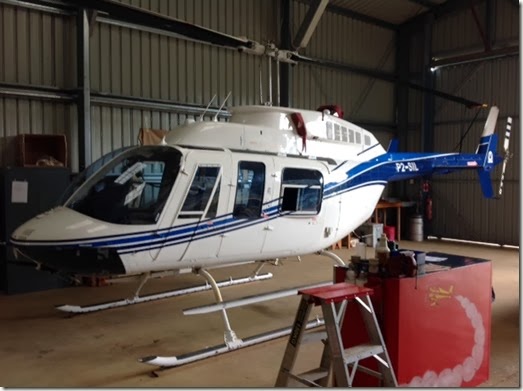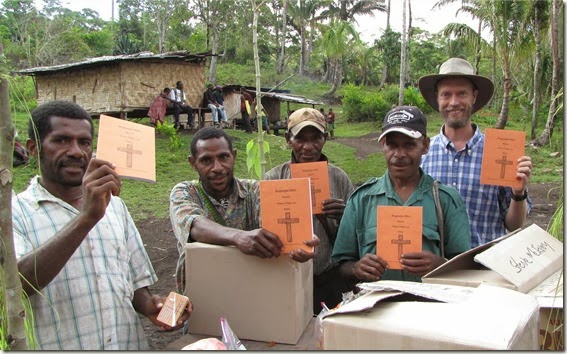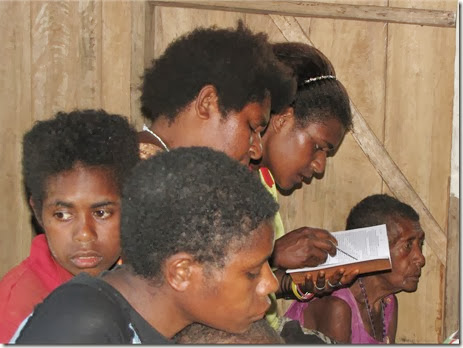Papua New Guinea has always had a wet and a dry season (or a wet and a wetter season, as some like to say). This year the dry season was more arid than any I’d experienced during my short history in PNG. And looking back I realize there are several natural stages to our “drying out”.
First, the dirt roads get crumbly and it’s difficult to walk on them without twisting an ankle. Cars kick up loose stones and the dust lingers in the air.
Then I realize that I haven’t washed mud off the kids’ sandals in several days. All the shaded corners of spongy ground in the yard must have had time to dry up. I even stop reprimanding husband and children for walking inside the house with their shoes on.
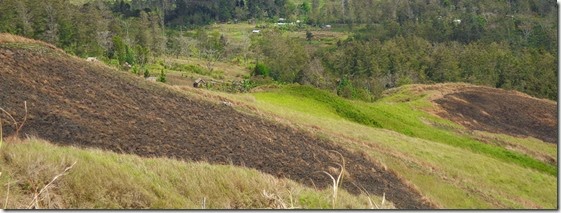
Next, the local young men start burning grass in the fallow fields around our center. There are various theories as to why they do this: 1) The smoke will make it rain. 2) Burning the dead grass off makes it possible for fresh new grass to grow. 3) Boys just like to play with fire. I personally favor theory #3.
Although the fires rarely spool out of control we do have to endure ash covering everything—including clean laundry, kitchen counter-tops and the toilet seat in the middle of the night. (You can ask one of our co-workers about that one.)
Once the atmosphere is thick with smoke, we forget to carry umbrellas with us every time we leave the house. In fact, after 3 weeks without rain we start intentionally leaving the house without an umbrella, or removing the dry laundry from the clothesline. It’s kind of a dare to those dark clouds hovering in the sky to soak us and our clothes.
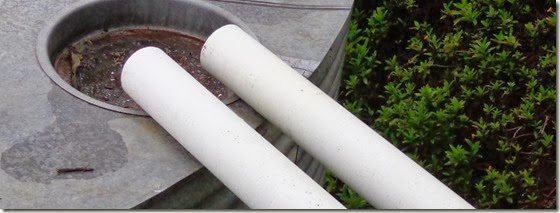
One of my local friends asks if she can fill 2-liter bottles of water from our water tank to take back home since her village’s tank is already dry. And by the 4-week mark, we’re concerned about our own rain water tank. We switch the plumbing in the house over to mostly river water. That means somewhat-brown water flows out of all our taps except the one we use to fill our drinking water filtration system. When it’s time to wash dishes we have add bleach to wash and rinse water and let it sit for twenty minutes. I confess I don’t always remember. Occasionally a load of laundry comes out dirtier than it went in and I have to rinse it again in our precious tank water.
After 6 weeks without rain, center administration warns everyone to go easy on the river water. Make sure outside taps aren’t left running accidentally, and no spontaneous after-school water fights with the hose. I begin to sing, “Let it rain. Let it rain. Open the flood gates of heaven…” every time I see a fat, gray cloud in the sky.
At the 8-week mark, just as the gardens need water the most, we’re told to use the river water sparingly. The creek is almost dry, and pumps are flown up from the capital to pump water from another larger but more distant water source. We take speed-showers and resist lingering in the steamy, solar-heated water.
My local friend tells me her kaukau (sweet potatoes) have shriveled up and the ground is hard as a rock. Her children had to carry water from the river using buckets to soften the ground so she could prepare it for seed. Kaukau is the main staple in a Highlander’s diet, and our neighbors wonder where they’ll get food in the coming months. I feel guilty because I can still buy groceries at our store, so I slip visitors a bag of rice or two as a parting gift.
After 9 weeks, our center administration is asking people to pray for rain. We send out an urgent bulletin to our prayer partners.
AND THEN…God turns the giant spigot in the sky to “ON”. The rain pours down from the clouds. The cracked, dry earth absorbs the water like a sponge and you can almost hear the flowers sigh in relief. The kids and I dance on the verandah, thanking Jesus for hearing our prayers. The thunder of water droplets pelting the roof nearly drowns out our singing. Fascinated, I revel in the sound of water running down the gutters and watch it splash into our tank. The echo of the fall emphasizes how empty our tank really is.
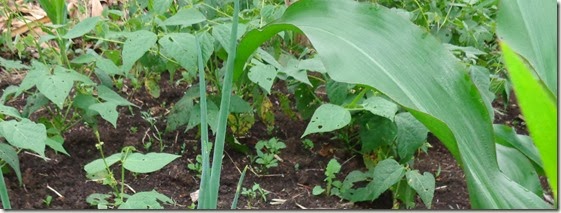
Now it rains nearly every evening. The hills are green again, and the gardens are flourishing. There are dirty footprints on my newly mopped floor, and I’m regularly scrubbing muddy sandals and boots. I’m smiling though as I lie in bed and listen to the precious precipitation on our corrugated tin roof. It’ll take me awhile to wish for all that sunshine again…at least another 9 weeks. <wink>

